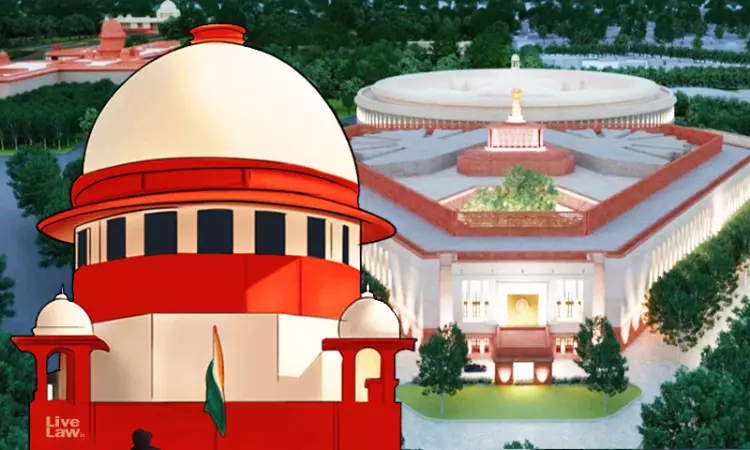Rajya Sabha's Role Part Of Basic Structure, Rajya Sabha Elections Protected By Legislative Privileges Under Article 194 : Supreme Court
Awstika Das
4 March 2024 7:54 PM IST

The constitution bench has clarified the 2006 Kuldip Nayar judgment where the court had rules that Rajya Sabha elections were not proceedings of the legislature within the meaning of Article 194 but a mere exercise of franchise.
Next Story


